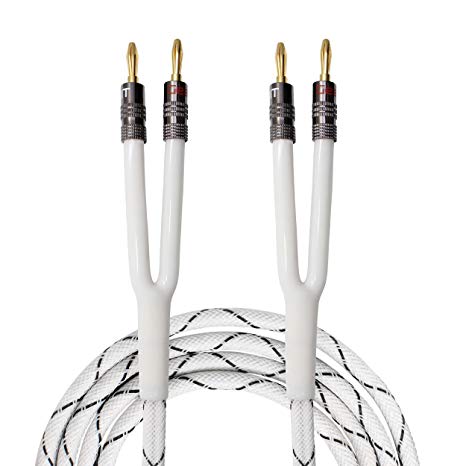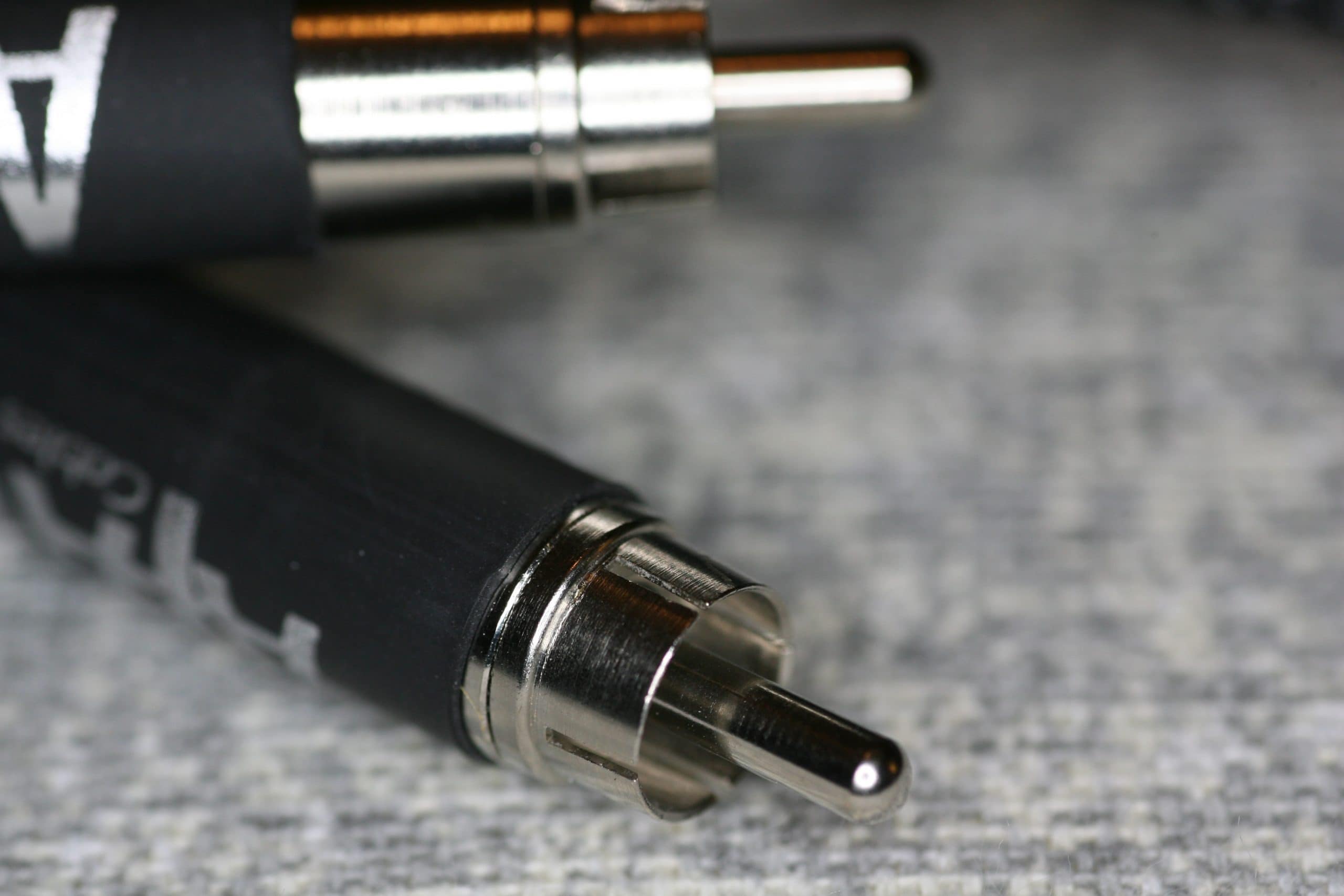At least once a week I see some type of argument online about audio cables. Mostly whether or not audio cables make any type of difference in your sound. These debates rage on as people who believe they make a difference and those who oppose can not find middle ground. My personal belief is that to a certain degree they will make some difference, and it is so dependent on other conditions that it’s nearly impossible to say for sure.
Cables are a part of the system
Our audio systems are just that, systems. All the parts have to work together to produce sound. How well they work independently of each other is not as consequential as they whole picture. Imagine having the best speakers, if there ever was a pair, and hooking them up to a kids karaoke machine. You can’t expect them to perform to their peak abilities. So we do research and read reviews to hopefully come up with the best pairing of components for the environment they will be in and fit our budget. Certainly how we connect these pieces together matters right? It does to a degree. Audio Cables should be as good as the equipment they are connecting. A friend and I were discussing this recently and while he is not an audiophile he is a hobbyist in competitive target shooting. He compared cables to scope rings, the part that mounts the scope to the rifle. No matter how much or how little you spend the scope will be attached right. Same for cables no matter the budget you connect the components. Well that is not the whole story. Once you use the rifle or audio system the weakness of the cheaper parts can be come apparent. Cheap scope rings can bend a scope after firing a rifle. Cheap Cables may add distortion or pick up stray signals if not shielded well. It is easy to say two different priced products do the same job, but using they shows all the difference.

How can you pick audio cables
A decent way to know what you should or shouldn’t use is to read other peoples experiences with different cables connecting the same or similar components that you have. Also a budget will help. My belief is that your cables should make up around 10% plus or minus of your total system. This will help with diminished returns. Essentially after a certain point the cable will be better than the system and you will see no effect after that point. My reference system is as follows:
Marantz Sr7009 for source selections and preamp
Nakamichi PA5 Stasis Power amp
Martin Logan LX16
MacBook Pro for streaming (sometimes iphone)
Pro-Ject Debut Carbon with 2m Blue
Audio Quest Evergreen interconnects
gearIT speaker cables
OEM Power Cables
I noticed a difference going from generic bare ended speaker wire I used to set up the system and determine the best length of speaker cable to the gear it cables. They are not expensive, they are just better shielded and have gold banana terminations. These give a better connection at the amp and speaker end.

Audio Cable Companies
What is the deal with the companies? Are they all out to dupe us out of money? Why don’t they ever show tests? All these questions and more come up when people discuss the merits of cables. I think to some degree that tests matter. Though a test result only tells us that the cable performed as such in the exact scenario it was in. Chances are you and I will not be listening to the same source in the same acoustic environment through the same gear. So the test is moot right? Not entirely, they could provide tests comparing the cables they make to their competitors given all other parts equal. Certainly one would think that if all these cable companies were frauds the industry would be rid of them, like most industries were quacks try to peddle their wares. The problem is that when there is an industry based mostly on opinion and as subjective individual preferences, such as audio, it may be easier to sneak around as a fraud. Certainly there are placebo products out there, I have seen audio room crystals that likely work as well as healing crystals, that is to say if you believe they work then they do. At least with audio room crystals there is no risk of death if you just think it worked and it actually doesn’t
What about whats inside?
Even if someone convinces another person that cables matter, the next point made I often see is; “what about the wiring inside the amp, speaker, etc.”. Is this valid, does that wiring negate all the flashy stuff we run across the floor outside? Sure to a point once again. Point to Point wiring inside an amp or speaker is short and shielded by the amp and speaker cab. It is not subjected to the same outside signals and 120 volt power cables running along it. Also the chassis is grounded which helps with rogue signals. Your unshielded external wires are not. Once again, a 50 dollar amp will use cheap wires, transformers, circuits and likely see no benefit from even cheaper decent cables, but I can assure you if you look inside a Mark Levinson amp, nothing is cheap.

Do audio cables matter then?
Cables matter if you want them too. Ultimately it makes no difference to me personally how you enjoy your system. I will continue to upgrade cables as part my own system as it gets upgraded elsewhere. If you spent 20 bucks for all of your cables and still enjoy the music coming from the speakers, that’s awesome. I will say that cables should be the last thing to worry about when you are unhappy with your system. Speakers, amps, and sources make more difference per dollar spent. Though when fine tuning you may notice better cables get you the final push to your version of perfect. What do you think, do cables make any difference at all or is all just made up?
My final thought is that it shouldn’t matter to me, you or anyone else how we each spend our money on this hobby. If I want to spend more than your mortgage on cables or a few dollars, if I am happy with the sound then that is the perfect cable. The same goes for any of you.

